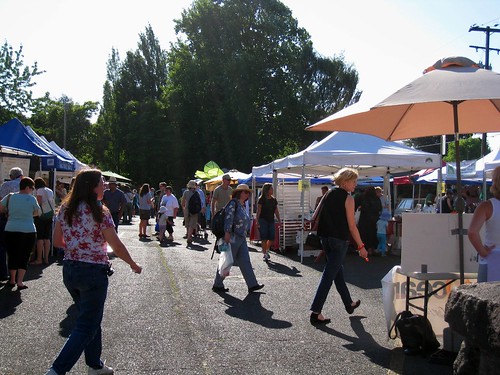Health Equity Dialogs
I went to the Report Back sessions resulting from the community dialogs regarding the series Unnatural Causes. Not only was it a report back, we got to vote (15 dots) on those items for action that came out of the dialogs. (I never did end up writing about the final one, but the information was mostly covered in the preceding posts anyway.) The county chair was there. He did raise his hand when they asked "Who saw any of the showings of Unnatural Causes? He said a few words…that he strongly supports the project, that he respected this piece especially (reporting back and getting feedback), and that he saw this as fulfilling a promise. There are two more report back sessions scheduled. (October 11, 28)
They wanted us to know the library has it.
There were 60 screenings, and over 600 people participated. It was often suggested that they continue to do these showings and dialogs. They wanted to increase visibility of the need to work on this issue of equity in health, and these did so. Another of their goals is to advance policy solutions to address health inequities. The report on this will probably be released in December. Oregon is restructuring how Oregonians get health care, and the work of the Health Equity Initiative has had an influence.
I was hoping the summary of the feedback would be on the website, but it doesn't seem to be there.
One of the things they promised they would do is make it as easy as possible for community groups to give showings of the series. I wonder if that could mean that if a community group wanted to use a library meeting room to host showings and dialogs, if this group could use equipment not otherwise available to public groups, such as a DVD projector.
Eastbank Farmers Market
There were many many items we voted on, and it was difficult to vote. Some of my favorites:
- Fund micro-enterprise and entrepreneurial training that could be linked to empowerment and health promotion with various populations.
- Give companies tax credits for having employees volunteer which would help offset costs of events such as Potlucks in the Park, a program serving meals to the homeless
- County programs should establish benchmarks for building community
- Use public service announcements to raise awareness; use public media campaigns
- Improve social fabric, safety, and civic engagement of neighborhoods through creative design of affordable housing and co-location of services; building design that encourages community cohesion
- Ban the marketing and sale of junk food in schools
- Create incentives to increase access to health food in underserved areas; provide incentives for grocers in low-income neighborhoods to have affordable, healthy food
- Create more "one-stop shopping" service centers that include County services
- Work with local farmers to get food to the underserved (I paraphrase)





No comments:
Post a Comment